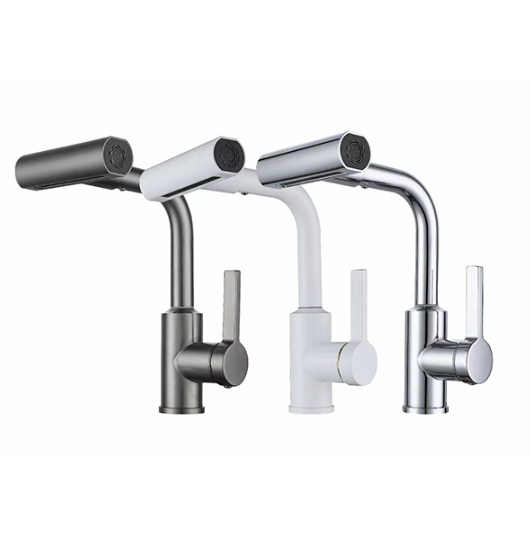In the food service industry, it is crucial to ensure cleanliness and sanitation for the sake of health safety as well as compliance with various regulations. That being said, stainless steel kitchen faucets are very important because they possess hygienic properties which contribute towards creating a safe and healthy environment. This paper will focus on these qualities of stainless steel taps that help in keeping commercial kitchens clean.

The smoothness of stainless steel faucet surfaces doesn’t let bacteria or any other microbes penetrate through them since they are non-porous. Such materials as plastic and brass have porosities that enable germs to find their way inside where they can multiply easily leading to contamination in restaurants among other food joints.
Whenever we talk about cleanliness levels achieved by different items used within hotels; none beats those made from steel especially when it comes to cleaning ease. Regular washing using mild soap together with warm running water helps eliminate dirt particles stuck onto polished finishes thus maintaining an environment free from disease causing organisms such as virus however stubborn it may seem at first glance.
Another great feature about this type of material is its ability not only resist stains but also discolorations even after being used for quite some time unlike most metals including copper which usually turn greenish within few months due reaction with atmospheric gases like oxygen. As a result Faucets made out stainless steels always remain shiny therefore improving beauty standards required within hotels while ensuring good hygiene practices.
Besides preventing staining caused by reactive properties exhibited by various metals towards certain chemicals present in tap water supplies; stainless steel faucets prevent bacteria from thriving on their surfaces hence minimising chances of cross contaminations among different types of foods handled concurrently within restaurants. Furthermore the smoothness exhibited by these materials makes it difficult for moulds to grow thus reducing risks associated with allergic reactions especially among individuals who are sensitive towards such organisms commonly found in damp areas like kitchens.
In order to ensure compliance with health standards; steel taps must be used throughout all sections involved in preparation, cooking, serving or storing perishable goods meant for human consumption since they act by preventing build-up of harmful micro-organisms known causes foodborne diseases. Additionally good hygiene practices dictate that stainless steels should be utilized during dishwashing activities carried out within commercial establishments where large numbers people get served everyday since there is high likelihood coming into contact with dirty utensils contaminated either directly through hands or indirectly via used water.
To sum up, stainless steel faucets have numerous benefits when it comes to maintaining cleanliness and sanitation in commercial kitchens as well as other places where food service takes place. Being non-porous prevents growths like bacteria while resistance against stains ensures easy cleaning methods are employed even after being used over prolonged periods unlike some metals which may require special care due their vulnerability towards discoloration caused by frequent exposure oxygen gas while still being decorative materials within restaurants settings. As a result any serious establishment concerned about hygiene should consider installing tapwares made out this particular metal as part its overall strategy aimed at achieving highest possible levels health safety standards